Introduction
The University of Silesia of Katowice is located in Katowice, Poland. It is a comprehensive public research university, famous in Poland for its high-level teaching quality and rich scientific research results.
Overview
Number of students: about 27,395 students.
Number of faculty and staff: 2,082 teachers.
History and establishment time
Its history can be traced back to the establishment of the Katowice Institute of Education in 1928, the establishment of the Katowice Higher Normal School in 1950, and the relocation of a branch of the Jagiellonian University in Krakow to Katowice in 1962, focusing on the humanities and social sciences. These developments eventually led to the official establishment of the University of Silesia in Katowice on June 8, 1968, and the first academic year began on October 1 of the same year. At that time, there were four faculties and 12 different degree programs. Since then, the school has continued to expand, establishing new faculties and departments, and from 2002 to 2003. The last round of departmental reorganization was completed in 2017.
School Strength
Teaching Staff: It has a large and professional teaching team, with 2,082 teachers providing high-quality teaching and guidance for students.
Scientific Research Achievements: It has carried out in-depth research in many fields, achieved remarkable scientific research results, undertaken a number of national and international scientific research projects, actively promoted the transformation and application of scientific research results, and worked closely with enterprises and all sectors of society.
International Cooperation: It has signed more than 100 academic exchange agreements with more than 32 countries around the world, such as the Free University of Brussels in Belgium, the Dresden University of Technology in Germany, and the Heilongjiang Agricultural University in China. It has also cooperated with Erasmus + It is planned to cooperate with many well-known universities such as the University of Vienna and the University of Helsinki.
Nature of the institution
Public university.
Educational philosophy
Focus on cultivating students' comprehensive literacy and innovation ability, emphasize the combination of theory and practice, encourage students to learn and research across disciplines, so as to adapt to the needs of diversified social development and cultivate professionals with global vision and social responsibility.
Key laboratories and disciplines
Key laboratories: The school has a number of advanced scientific research laboratories equipped with high-precision experimental equipment and instruments, providing strong support for teachers and students to carry out cutting-edge scientific research, such as laboratories in physics, chemistry, biology and other disciplines.
Key disciplines: Covering humanities, social sciences, natural sciences, technology and other fields, among which law, physics, mathematics, chemistry, education and other disciplines are strong and in a leading position in Poland. The research results of some disciplines also have a certain influence internationally.
Faculty
There are eight faculties, including the Faculty of Humanities, the Faculty of Natural Sciences, the Faculty of Social Sciences, the Faculty of Science and Technology, the Faculty of Law and Administration, the Faculty of Arts and Educational Sciences, the Faculty of Theology and the Krzysztof Kieslowski Film Academy, offering 71 degree programs and 234 There are many professional options.
Ranking
Ranked in the 801-1000 range in the 2017 World University Rankings by Times Higher Education magazine.
Expenses
Undergraduate tuition is about 2000-3000 euros/year, and master's tuition is about 2500-3500 euros/year. Tuition fees for different majors vary slightly.
Campus
Location: The main campus is located in the center of Katowice, and there are also facilities in Sosnowiec, Ciescin and Chorzów. It is located in the center of the highly urbanized Metropolis GZM region and is surrounded by developed industries.
Campus Environment: The campus has diverse architectural styles, integrating historical and modern elements. The campus is tree-lined and beautiful. The teaching and living facilities are complete, including modern teaching buildings, laboratories, libraries, gymnasiums, student dormitories, etc., providing students with a good learning and living environment.
Library: The Scientific Information Center and Academic Library (CINiBA) was built and opened to the public in 2012. Most of the collections are free for users in the form of open spaces. It is equipped with advanced technology and information tools and is friendly to people with disabilities. It was nominated as a candidate for the European Contemporary Architecture Award in 2015.
-
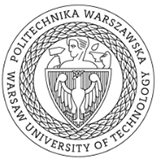
Warsaw University of Technology
-

Poznan University of Life Sciences
-
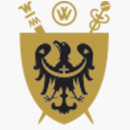
Wroclaw Medical University
-

Nicolaus Copernicus University
-
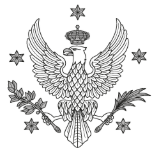
University of Warsaw
-
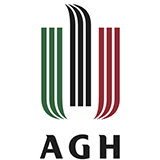
AGH University of Science and Technology
-

Silesian University of Technology
-
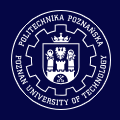
Poznan University of Technology
-

Jagiellonian University
-

Poznan University of Medical Sciences
-

Mesoamerican University
-

Istmo University
-

Mariano Galvez University of Guatemala
-

Regional University of Guatemala
-

Galileo University
-

Francisco Marroquín University
-

Rafael Landívar University
-

University of the Valley of Guatemala
-

University of San Carlos of Guatemala
-

Technological Institute of Tlaxcala Plateau
-

Golfo University
-

Technological University of South Sonora
-

Technological University of Huejotzingo
-

Tizimín Institute of Technology
-

Chilpancingo Institute of Technology

